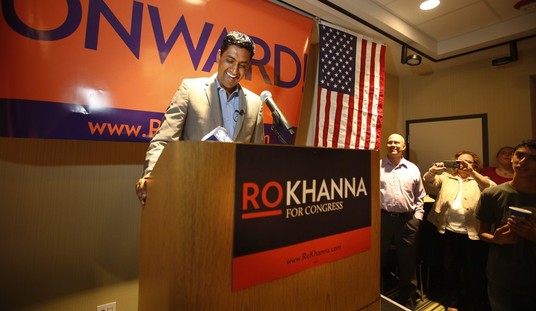Fearless prediction: You might be seeing this headline a few dozen more times between now and 2012. In this case, though, the expensive, wasteful boondoggle in question is Cash for Clunkers:
The Senate will vote to extend the popular “cash-for-clunkers” program before going home on Friday, Majority Leader Harry Reid declared Tuesday in a strong signal the government won’t let the trade-in rebates die under the surging demand that has almost exhausted federal backing.
Reid’s GOP counterpart, Mitch McConnell of Kentucky, predicted his party would not block a vote and “the matter will be completed.”…
Backers of the program picked up support from three other lawmakers who wanted the program limited to the purchase of even more fuel-efficient vehicles.
The fuel efficiency gains helped sway Democrats Dianne Feinstein of California and Chuck Schumer of New York, and Republican Susan Collins of Maine, who had complained that smaller rebates of $3,500 were going to people buying new cars that get as little as 4 more miles per gallon than the gas-guzzlers they traded in.
Fun fact that we haven’t emphasized before in our posts on this: Not only is the program destroying usable cars in the name of making the Earth a tiny bit greener, but it may actually end up making the Earth less green. In addition to the point Ed made this morning about owners being more likely to drive new cars, there’s a double environmental whammy lurking here. The money for the program is coming out of the Department of Energy’s share of the stimulus, leaving less cash left for them to apply towards green technology, and the process of manufacturing new cars while junking clunkers is apt to consume more energy than is saved by consumers trading up for more fuel-efficient cars. As for the stimulus effect, that’s mostly hype too:
An analysis by Macroeconomic Advisers forecasts that the program will affect only the timing of car sales, not total sales: “In particular, we expect that roughly half of the 250,000 in new sales would have occurred in the months following the conclusion of the program, and the other half would have occurred during the program period anyway. Therefore, we do not expect a boost to industry-wide production (or GDP) in response to this program.”…
The rebate program is … emblematic of the administration’s unwise approaches to economic policymaking. It borrows money to generate economic activity, which in effect borrows growth from the future, since eventually that loan will have to be paid back through higher taxes.
In short, what we’ve got here is a giveaway of taxpayer money that likely won’t achieve either its economic or its environmental goal, yet which has been spun as such a runaway “success” that we’re about to plow $2 billion more into it with god knows how much to come after that. Good work, Barry.
Update: Here’s what we’re spending $3 billion to achieve.
“Cash for clunkers” could have the same effect on global warming pollution as shutting down the entire country — every automobile, every factory, every power plant — for an hour per year. That could rise to three hours if the program is extended by Congress and remains as popular as it is now.
Climate experts aren’t impressed.
Compared to overall carbon dioxide emissions in the United States, the pollution savings from cash for clunkers do not noticeably move the fuel gauge. Environmental experts say the program — conceived primarily to stimulate the economy and jump-start the auto industry — is not an effective way to attack climate change.







Join the conversation as a VIP Member